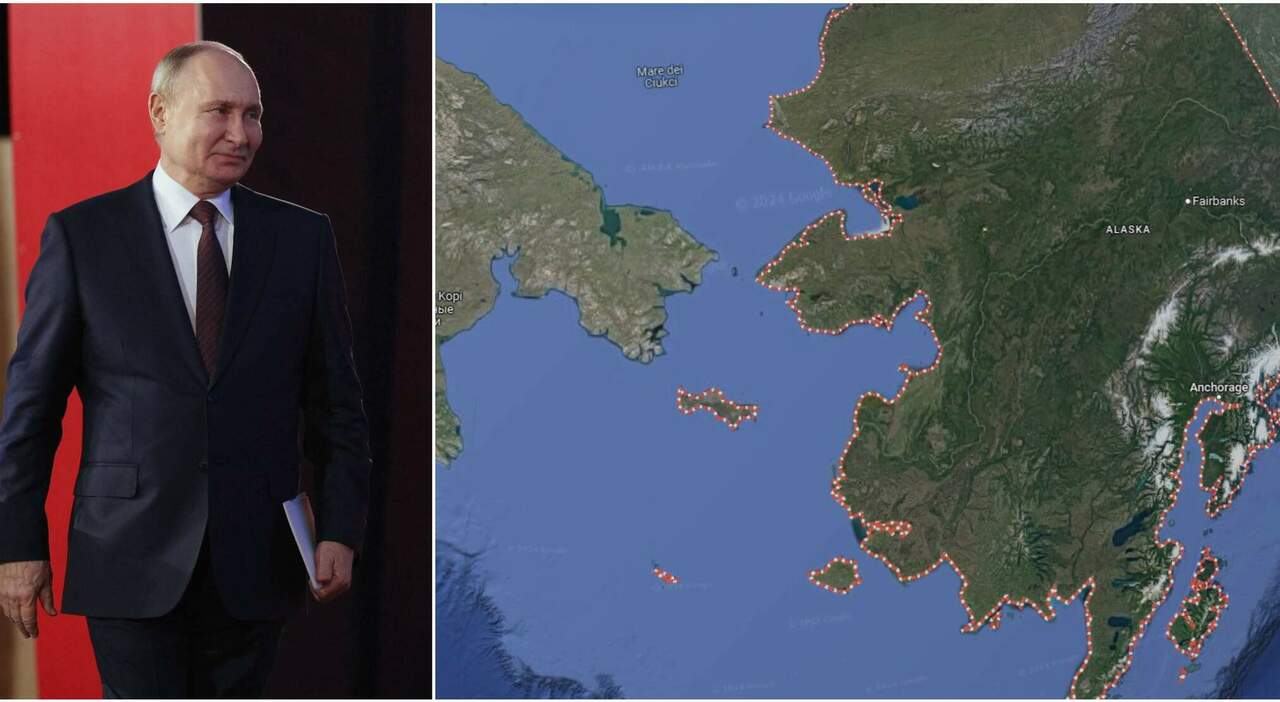Vladimir Putin's Russia wants Alaska back? The Russian president has signed a decree allocating funds for the research, registration, and protection of Moscow's properties abroad. The list includes territories ceded by the Russian empire and the Soviet Union. Therefore, the list would also include Alaska, sold to the United States in 1867, territories in Central and Eastern Europe, areas of Scandinavia, sectors of Asia.
Putin's decree
As highlighted by the American magazine Newsweek, the decree was signed by the president last January 17th. The measure does not have well-defined contours. The Institute for the Study of War (Isw) points out that "the precise parameters of what constitutes current or historical Russian property are not clear. The Kremlin could use the 'protection' of the territories of its claimed properties in countries beyond its internationally recognized borders to promote soft power mechanisms in post-Soviet states and neighboring countries, ultimately pursuing internal destabilization."
The threat to the United States
The decree, in the Russia heading towards the presidential elections in March, is particularly liked by ultra-nationalists. Pro-war bloggers, a category on the rise in the last 2 years since the beginning of the conflict with Ukraine, see in the document a step forward towards new conflicts with 'neighbors', including the USA. "We suggest starting with Alaska", is the input that comes from a Telegram channel with over 530 thousand subscribers. In the crosshairs are territories of all latitudes: Ukraine is not a novelty, but Bessarabia, the Grand Duchy of Finland, Armenia, Azerbaijan, most of the Baltic countries, and a significant part of Poland come into play.
The history of Alaska
Of course, the references to Alaska, which was ceded to the United States in 1867, are striking. In the past, Putin has removed the topic from the list of worthy subjects of attention, although calls to reopen the issue in terms of a territorial dispute have never been lacking. According to the Isw, any claim would be devoid of any foundation. The reaction of ultra-nationalist circles to the signing of the decree, however, is a clear signal of the entrenched presence of a revanchist orientation that, inevitably, must be considered as a significant factor for a country at war. Feeding the myth of a reconquest, even with just a piece of paper, could make it easier to start a new mobilization after the presidential elections that will confirm Putin as the leader of the country.
This article is automatically translated
